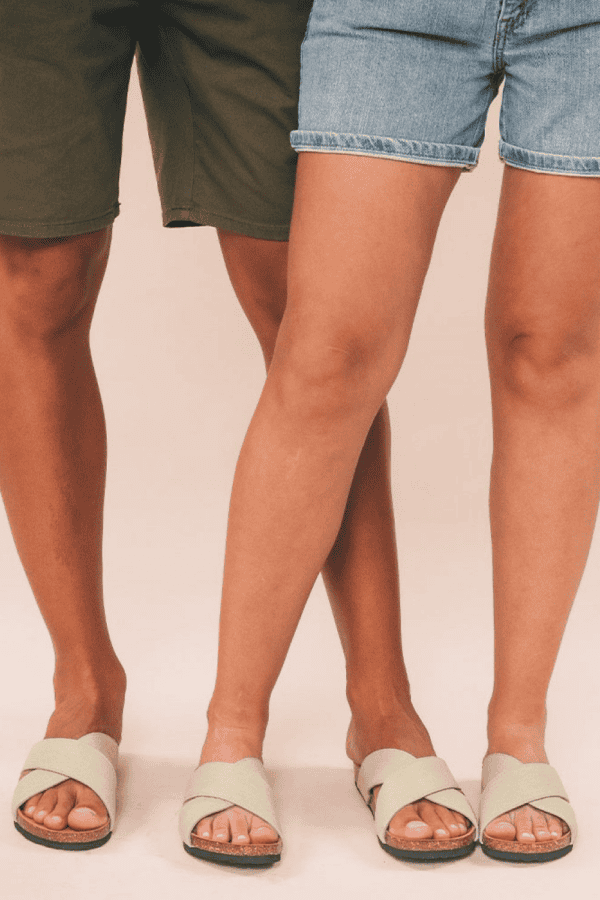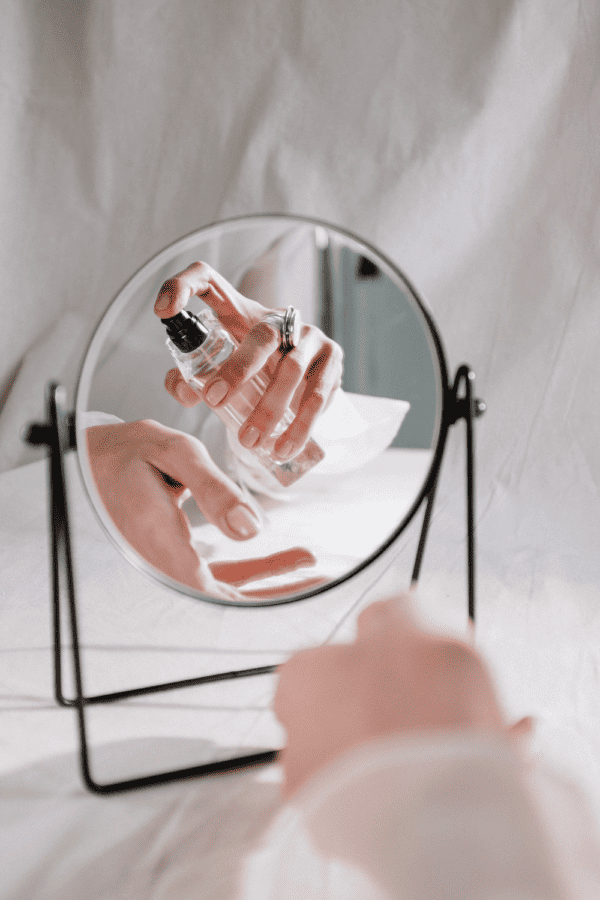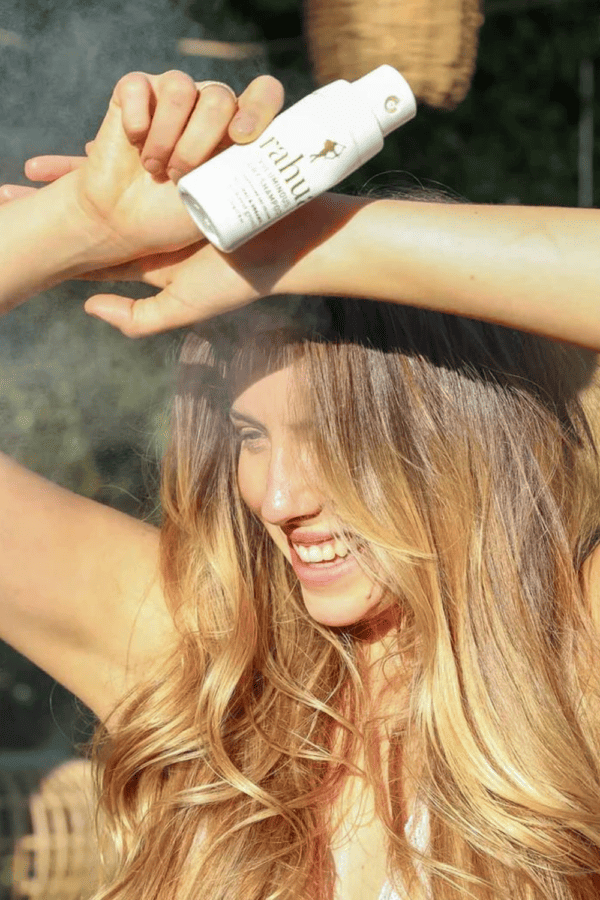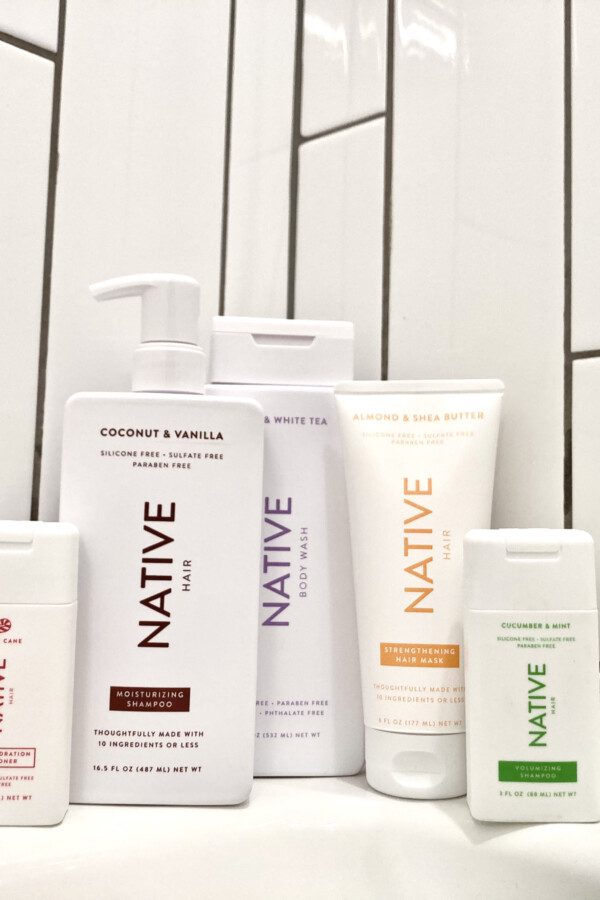Linen is an excellent eco-friendly and (generally) non-toxic fabric that’s especially fitting for cooler seasons and climates.
So for this article, I’ve rounded up some of our favorite linen brands that are prioritizing safe, sustainable, and local manufacturing processes. The brands featured here are all made in the USA. Here are even more linen clothing brands made in other parts of the world.
Table of Contents
This guide contains affiliate links, which means we may earn a commission if you decide to make a purchase. As always, we only make recommendations that are genuine. Featured Image Credit: MATE
The Benefits of Lovely Linen
Linen is made from the flax plant, and it’s been used for thousands of years. It is:
- lightweight
- durable
- cool and breathable
- vegan
- naturally hypoallergenic and anti-bacterial
- It requires very little water and/or pesticides to grow
- It gets softer with time
- It doesn’t require much special care
But linen isn’t without its downsides:
- It wrinkles super easily. (Some don’t like the wrinkled look, but I say embrace it!)
- It doesn’t have much elasticity, so it’s not good for certain types of clothing (like activewear).
- It can be more expensive than alternative fabrics like organic cotton. (This is because it’s generally more laborious to produce.)
Can Linen Be Organic?
Here’s the good news: linen is actually almost always grown organically. Unlike conventional cotton, linen grows really well in a variety of climates without the use of toxic synthetic herbicides or pesticides. So even though you’re not likely to see third-party organic certifications on linen garments and home goods, it’s safe to assume that it’s probably grown organically.
The next question is how the flax plant is turned into a fabric. Linen goes through a process called retting, which is basically where the outer stems of the plant are separated from the woody inner parts and then spun into yarn.
There are two primary ways of retting: one uses harsh chemical acids, while the other uses dew and rain! It takes longer, but the dew retting method is the way to produce truly organic linen.
Is Linen Non-Toxic?
On its own, linen is safe and non-toxic. What you really have to worry about are the dyes and finishes that are added to linen clothing.
First, beware of anything that says “anti-wrinkle” or “stain-resistant,” as this usually means things like formaldehyde and/or toxic PFAS have been added to the fibers.
Second, look for brands that use natural, plant-based dyes and/or safe synthetic colorants as opposed to azo-based dyes, which can be toxic.
Brands that come with certifications like OEKO-TEX can be a good indicator that the end product has been certified safe from certain potential toxins. These types of certifications aren’t perfect, but they’re definitely better than nothing.
Additionally, looking for European linen is a good idea because EU standards tend to be more strict than a lot of other places in the world when it comes to chemical safety.
On that note, let’s talk a little more about European linen…
What’s the Deal with European Linen?
You’ll notice that for this specific article, I’ve prioritized brands that manufacture their clothing in the USA.
Locally-made clothing has several benefits. It generally has a lower carbon footprint because there is less shipping involved. It provides employment for workers in America when so many of them have been lost to globalization over the past few decades. And even though “Made in the USA” does not always mean “made ethically,” (just like “Made in China” does not always mean “made in a sweatshop”), it can be easier for brands that are headquartered in the States to make sure things are running ethically and transparently.
However… As of right now, it’s really hard (almost impossible?) to find clothing brands that are not only manufacturing in the States but also using linen that’s actually grown here. Almost all of the American-made brands are using European-grown linen.
And while that does spread out the supply chain a bit, it’s not necessarily a bad thing. For example, the E.U. has more strict standards when it comes to environmental safety and chemicals that are allowed throughout the manufacturing process.
Related:
Is Linen Clothing Biodegradable?
Depending on how it’s processed and dyed, linen can biodegrade very quickly (even in just a few weeks!) Again, this depends on if anything is added to the fabric in the form of finishes and dyes. Some chemical colorants may not be able to biodegrade at all, whereas natural, plant-based dyes will likely compost quickly along with the fabric.
If you’re wondering whether your piece of linen clothing or bedding can be composted, don’t be afraid to reach out and ask the brand.
Is Linen More Sustainable Than Cotton?
When it comes to sustainable and non-toxic materials, a lot of it comes down to the way in which it’s grown and processed.
In general, linen is more sustainable than conventional cotton because it can be grown without the use of pesticides and it’s much less water-intensive. But again, you’ll want to pay attention to the chemicals and dyes that are used to produce the fabric and color the finished products.
When comparing linen and organic cotton, they each have their pros and cons! I’d say that when all things are weighed out, they’re relatively similar in terms of their level of sustainability.
These Are the Linen Clothing Brands That Are Made in the USA
Alright, now that you know what to look for in linen clothing brands, let’s get to the brands I recommend…
1. MATE
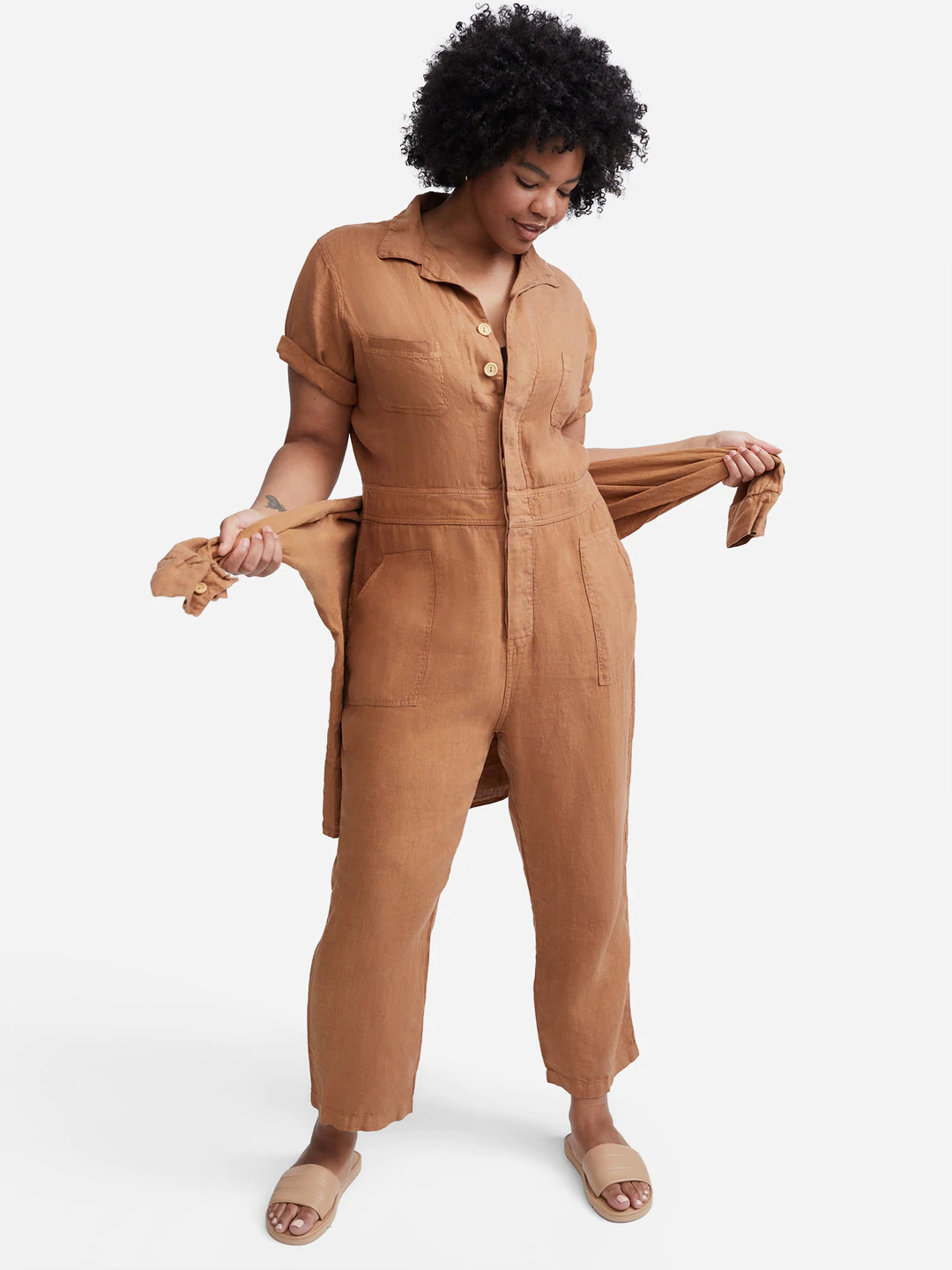
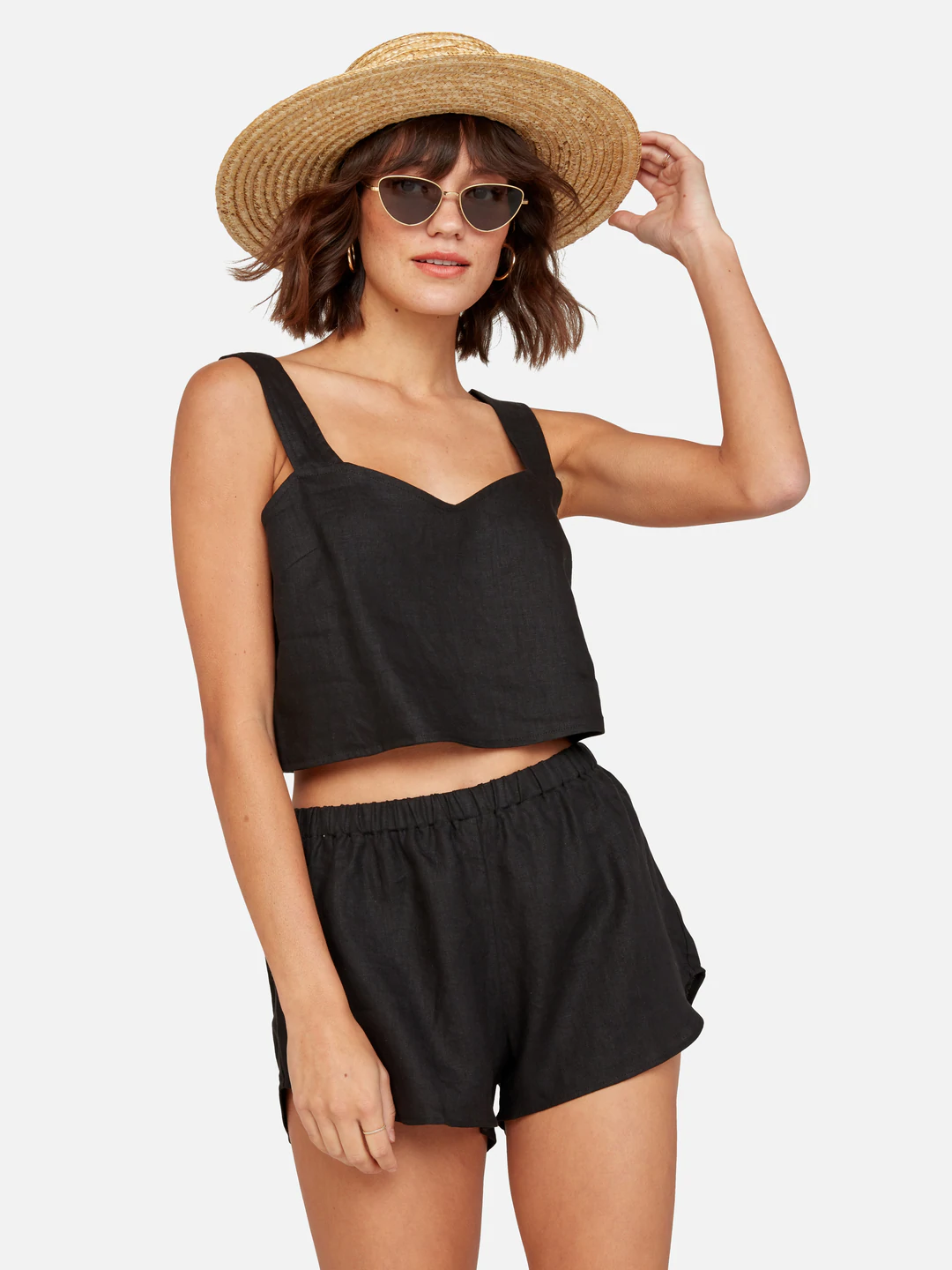
Made in: Los Angeles, California, USA
Fabric: 100% Linen
Size range: XS – 3XL
Price range: $74 – $188
MATE is one of my absolute favorite brands for non-toxic and natural women’s clothing. The colors are beautiful, their pricing is relatively accessible, their pieces fit well, and their garments are generally just easy to wear.
The team at MATE is committed to making clothing that’s free from toxic chemicals, so all of the fibers are organically grown and all of the dyes and colorants are non-toxic.
Plus, this ethical brand is committed to transparency throughout the entire supply chain, so you can read more about their processes in their factories, materials, and impact reports right on their website. They’re carbon neutral certified and a member of 1% For the Planet, too!
In addition to their linen collection, MATE also carries activewear and everyday wear for women, men, and kids made from organic cotton and TENCEL.
2. Lovanie
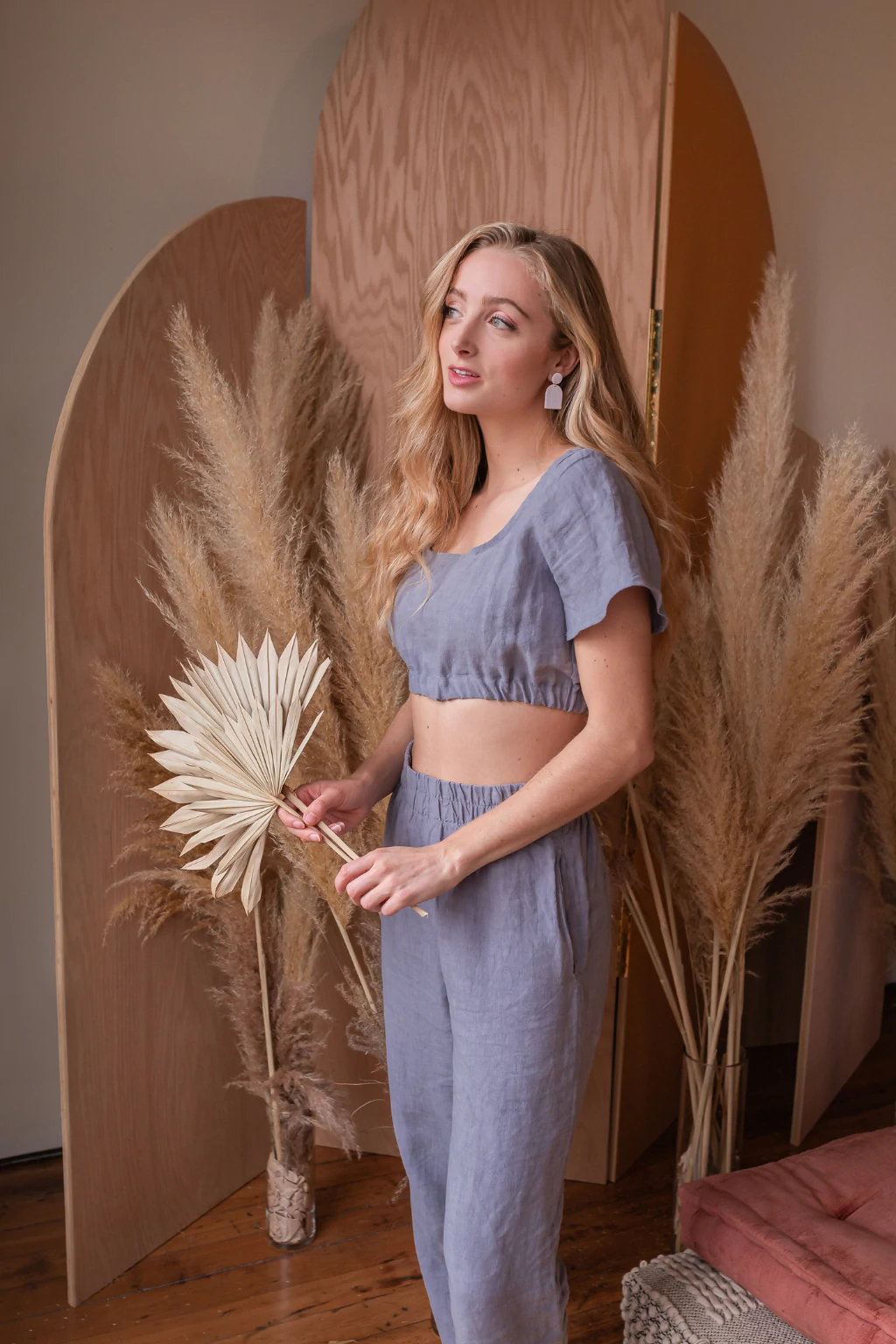
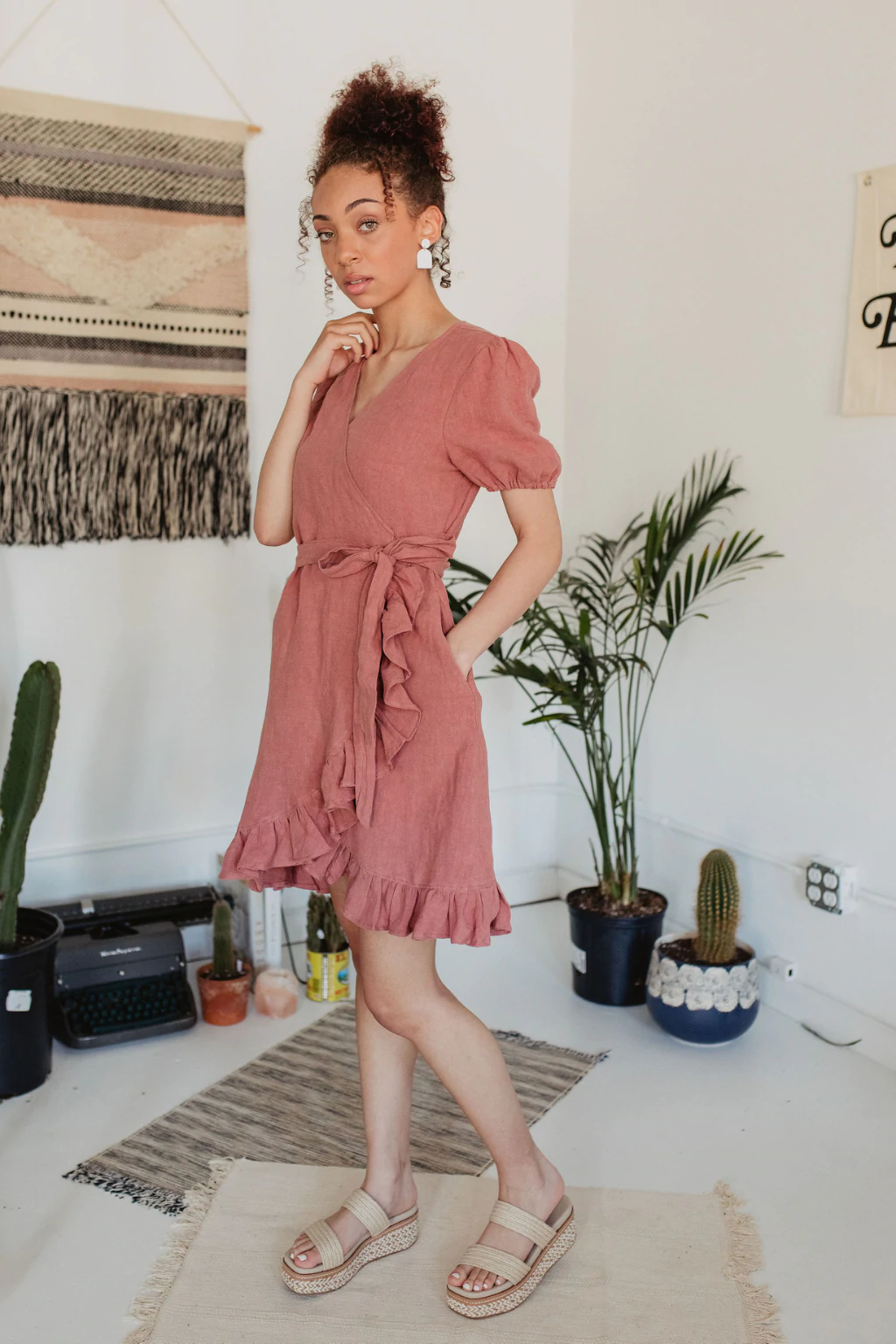
Made in: Seattle, Washington, USA
Fabric: 100% Linen
Size range: XSP – XLP (Made for Petites!)
Price range: $78 – $158
I love the romantic vibes that Lovanie brings to their collections. These gorgeous linen garments are specifically made for petite women (usually 5’4” and under). Their linen is sourced from Vancouver, Canada, and then everything is cut and sewn in partnership with a seamstress in Seattle, Washington (where they’re based).
Lovanie also carries some pieces made out of deadstock cotton and rayon fabric. And while I don’t love rayon, deadstock is better because it’s keeping that fabric out of landfills!
3. Pyne & Smith
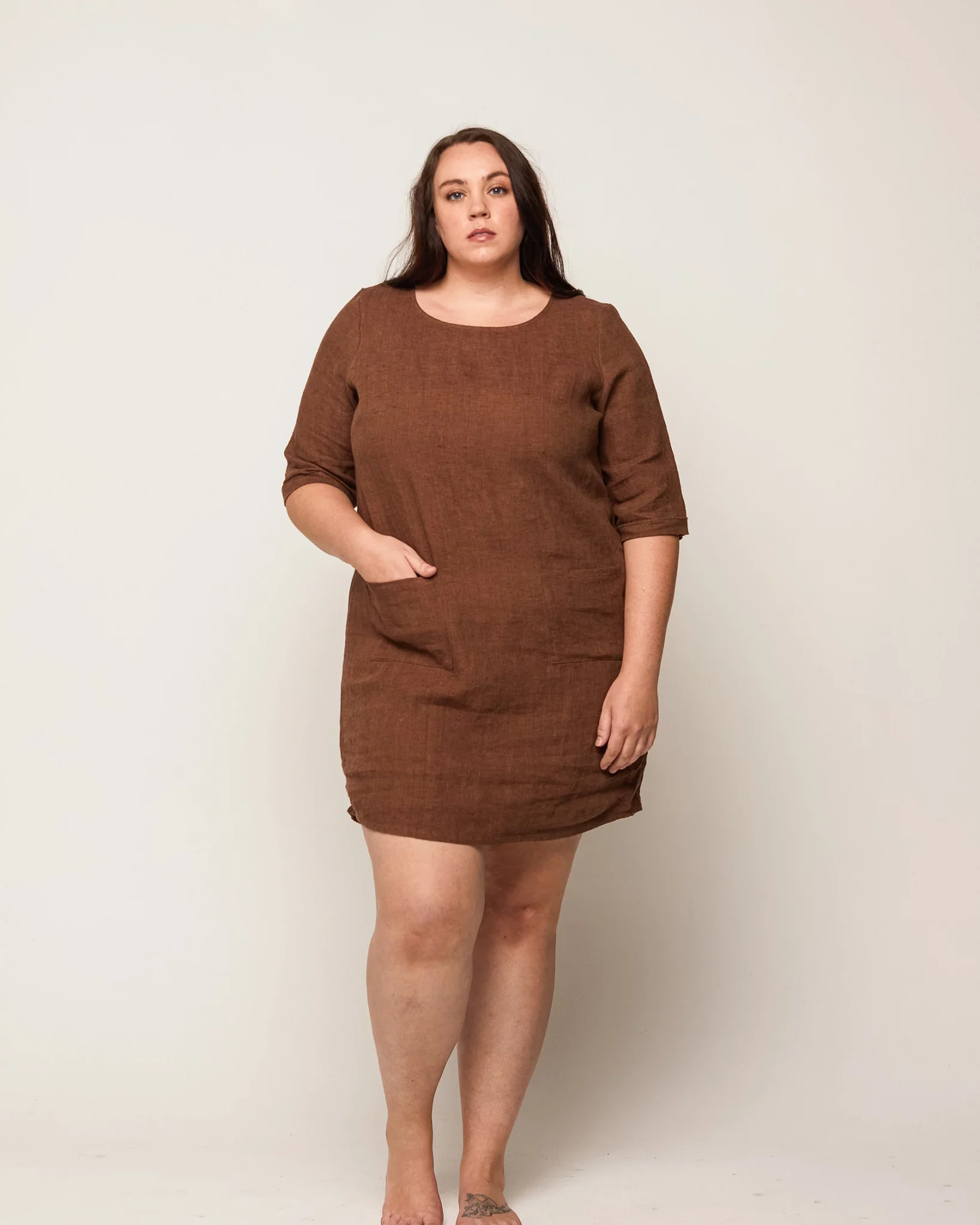
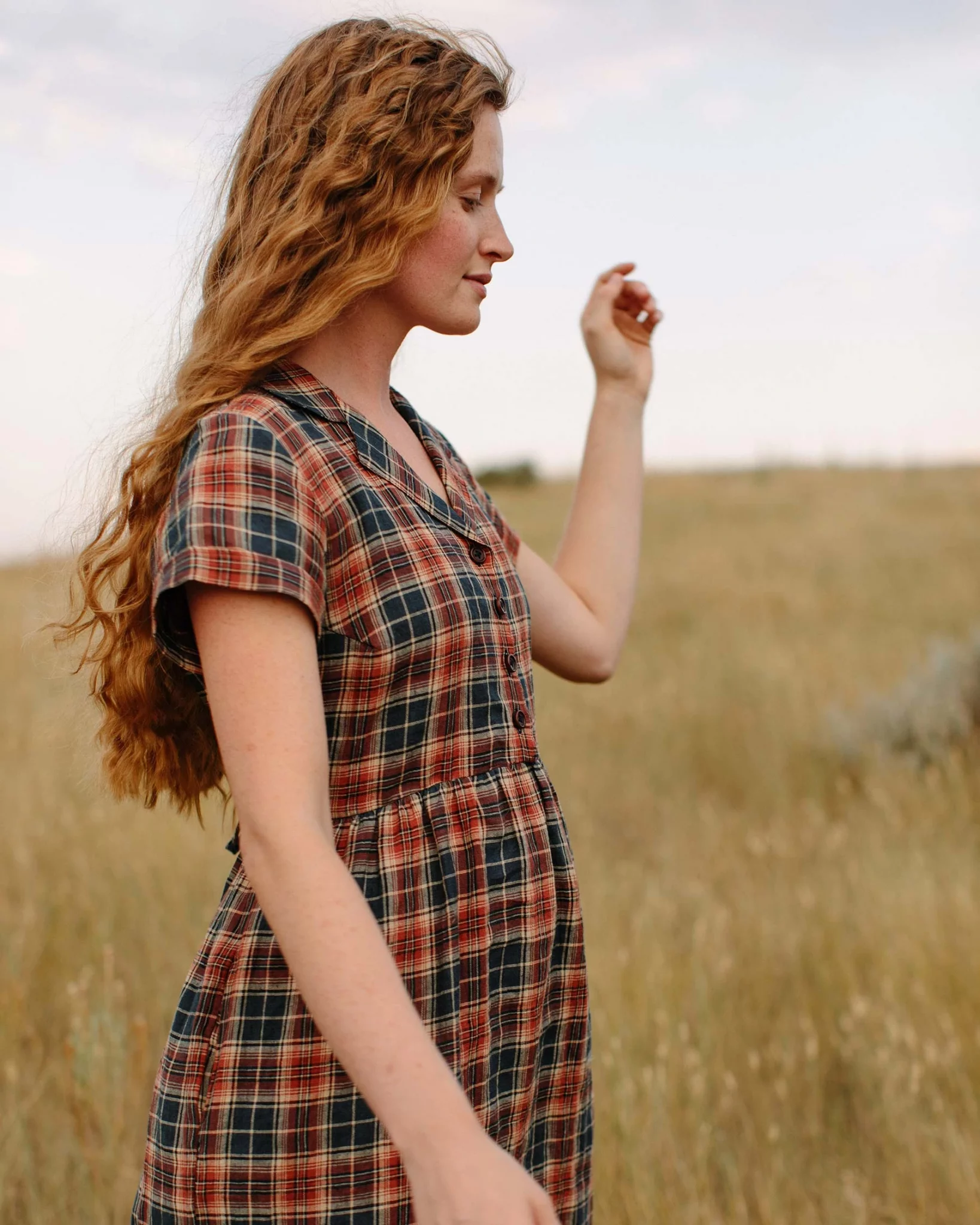
Made in: Los Angeles, California, USA
Fabric: 100% Linen
Size range: XS – 3XL
Price range: $127 – $220
Personally, I love spending my spring and summer days in dresses. They’re just so easy to throw on (minimal decision-making required!) and wear to run errands, meet with friends, go to a baby shower, or whatever.
Pyne & Smith’s collection of size-inclusive linen dresses are both beautiful and practical (hello, pockets!). Choose between long or mid-length, short- or long-sleeved, solid-colored or patterned.
All of the linen fabric from this sustainable brand comes from Europe where they meet all of the REACH standards for safety. Then all of their custom patterns are sent to LA where the pieces are cut and sewn together by hand by skilled seamstresses.
Even though linen dresses are what Pyne & Smith does best, they also carry tops, pants, and overalls.
More Sustainable Linen Clothing Brands
Looking for even more linen clothing brands? Here are some more sustainable brands making beautiful linen garments that are organic, non-toxic, and ethically made around the world:
- Magic Linen
- Not Perfect Linen
- Love & Confuse
- Linen Handmade Studio
- Son de Flor
- LAUDE
- SAUTHS
- Linen Fox
- Seaside Tones
- Quince
- Mara Hoffman
- LeMuse
- Valani
I hope this article has helped you in your search for sustainable linen brands that are made in the USA. And if you ever come across a fashion brand that also uses linen that’s actually grown in the States too, please let us know in the comments!
If you want us to keep you posted on the latest Filtery articles, environmental toxin news, and other fun stuff, be sure to sign up for our Filtered Friday emails.




